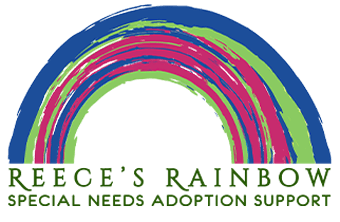Axel is 5 years old. Gross motor skills are on target for his age. He can walk, run, jump, climb, kick a ball, throw a ball, etc. He is toilet trained. His fine motor skills are well developed. He holds a pencil correctly and is learning to trace and copy objects. He’s right handed. He uses both a spoon and fork when eating. He can nest objects and build towers out of blocks. He knows the names of every day objects and how to use them. He can identify animals, food items, etc. He knows the difference between bigger/smaller, up/down and can follow basic directions. He can identify body parts by pointing to them when asked. He makes eye contact and has age appropriate attention span. He knows children’s songs and memorizes short actions. He can find hidden objects and will walk around the room, point, and identify objects that he’d like to have. He has pretend play skills and will pretend to cook and clean, mimicking actions that he’s seen others do. His expressive speech is delayed. He speaks using single words and short sentences, but the words are often pronounced incorrectly. He is being raised in a bilingual environment and this may be contributing to the delays in expressive language. He’s described as “curious, social and energetic”. He plays appropriately with toys and gets along well with other children and adults.
Gwen is 2 years old. She runs, climbs and slides down the slide on her own. She can jump with both feet at the same time. Goes up and down stairs without assistance. Kicks a ball by swinging her leg. She flips through the pages of books, sometimes pointing and recognizing the pictures but not naming them. She likes to flick the switches to turn the lights on and off, open the door handles. She has age appropriate attention span and memory skills. Her imagination is developing. She demonstrates age appropriate pretend play skills (feeds a doll and rocks it to sleep). Her language skills are delayed. She says a few single words. She mimics actions and follows simple directions. She responds well to familiar adults and seeks help when needed. She is learning to feed herself.
Silas is 3 years old. Diagnoses: Mild mental disability; considerable behavior disorder requiring care or treatment. Grand Mal seizures (with petit mal seizures or without them), unspecified. Other unspecified seizures: affective-respiratory seizures. Expressive speech disorder.
Silas had affective-respiratory seizures in his infancy (from the age of 2 months he often had seizure states when crying assessed as affective-respiratory ones). He had a fever induced seizure (febrile seizure) while sick when he was a year old. A CT at the time noted “focal paroxysmal activity found on the left side”. Convulex (medication) was prescribed. He has not had any seizures since August 2022. Follow-up testing in March 2024 found “no indications of epileptoform changes of focal or generalized character found in the areas free of artifacts.”
He has age appropriate gross motor skills. He walks, climbs stairs, throws a ball, hops on one foot. His fine motor skills are also well developed for his age. He feeds himself, washes his own hands, can take off his jacket, clothes and shoes, uses both hands equally, builds towers with blocks, can hold a pencil and draw a sun. He responds to his name, knows the names of familiar people, follows simple directions. He has age appropriate attention span and play skills. He enjoys playing pretend in the toy kitchen. He identifies familiar objects and uses them for their purpose. He can find hidden objects. He has a well-developed imagination. He enjoys listening to music and dancing. His expressive speech is delayed. He can say his name, but some of his expressive speech is hard to understand. He is still using limited single words and not yet communicating in sentences. He says “bye” when leaving and waves his hand. He can name some animals and make the animal sound. His receptive language is very good. He understands everything said to him and follows simple directions. He can show when he wants or does not want something. He attends preschool and is doing very well. The school does not have any concerns with his development nor his behavior. He eats a variety of foods and has a good appetite. He’s toilet trained.







